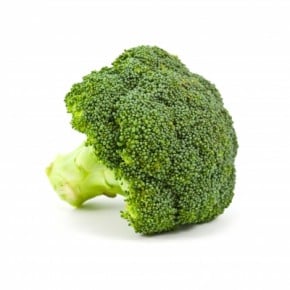Five Fantastic Foods
People are always asking me ‘which foods are the best foods’. In reality, if you only ate five different foods it would be quite tough to meet all of your daily nutrition requirements, however, especially in light of the new Australian Dietary Guidelines, I thought it might be a good time to give you insight to some of my favourites from each group and why:
Fruit: Raspberries
Raspberries are a fantastic source of vitamin C, folate and fibre, along with a bunch of other antioxidants. They work well as an afternoon snack, in your breakfast or dessert or your post workout smoothie. Plus, frozen ones work just as well as fresh!
Vegetables & Legumes: Broccoli & Chickpeas
I couldn’t choose just one thing for such a broad group, so you get two for the price of one!
Broccoli is an excellent source of vitamin C, A and folate, along with thiamine, riboflavin, niacin and vitamin E. It is incredibly easy to cook, and very readily available in the supermarket or at your local farmers market. It is also a great option for kids; having ‘trees’ growing out of the ‘hills’ (mashed sweet potato) is a great way of getting your children (or fussy partner!) to eat their greens!
Chickpeas are very high in plant protein and fibre, a good source of iron and also low GI. They can be added to salads, curries or tagines, made into hommus or dry roasted as a tasty afternoon snack. Furthermore, research shows that people who include legumes, such as chickpeas, are more likely to be a healthy weight, or maintain weightloss.
Cereals & Grains: Quinoa
Quinoa is a relatively new kid on the block in the western world, however has been around for centuries. It is low GI, gluten free, and higher in protein than many other grains. Plus, it is super easy to cook! It is delicious as an alternative to rice or pasta, used in salads or makes a great breakfast porridge (try mixing with yoghurt and raspberries- yummo!).
Dairy & Alternatives: Yoghurt
Yoghurt is rich in protein and calcium and can contain probiotics which are important for gastrointestinal health. The best thing about it? How good it tastes! Yoghurt can be mixed with breakfast, used as a snack or dessert or even used in savoury dishes as a dressing or dip.
Lean Meat & Alternatives: Salmon
Salmon is a fantastic source of lean protein and omega 3 fatty acids, which are essential for maintaining body systems and overall health. Research shows that omega 3s can help improve cognitive function, reduce risk cholesterol levels and may even improve some gastrointestinal issues. Salmon is very readily available either fresh, canned or frozen. Salmon can be used in many different ways, either cooked, or used raw as sashimi.
…and of course, WATER.
Chloe McLeod is a dietitian at BJC Health. This blog focuses on diet & nutrition generally and diet & nutrition in relation to the treatment of arthritis and arthritis-related diseases. Contact us if you'd like our help in managing diet-related health issues.

